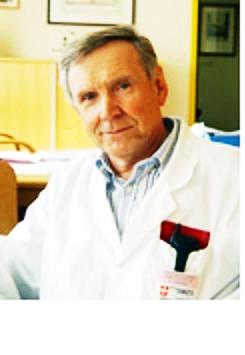Rudolf Schiessel
 |
Rudolf Schiessel |
|
| Biography | ||
Rudolf Schiessel started his academic career in the University Clinic of Surgery of Vienna Medical School. His surgical training comprised in addition to general surgery: traumatology, urology, thoracic surgery, experimental surgery, vascular surgery, gastroenterology and intensive care. An important step in his career was his training with John Goligher in the Leeds General Infirmary UK (1974), where he learned new methods in colorectal surgery, patient evaluation and scientific methods as well. Another step was his work with William Silen at Harvard in Boston USA (1979-80). In his laboratory he studied the protective mechanisms of gastrointestinal epithelia. After returning to Vienna he established a research laboratory with cooperations with Beth Israel Hospital and Tufts University in Boston. His surgical career focused more and more on colorectal surgery. 1984 the first patient with a low rectal cancer was operated with an intersphincteric resection. The first results were encouraging: no complications, continence surprisingly good. But it was a long way to go. In order to proof the oncological and functional safety of this technique many patients had to be observed over a long time. 1994 he published his first series in the British Journal of Surgery. He could show that this operation was an alternative to APR in selected cases and that the resection of the internal sphincter did not cause fecal incontinence. In 2005 he could report a larger series with a median follow-up of 6 years and a local recurrence rate of 5,3% showing its oncological safety. |
||